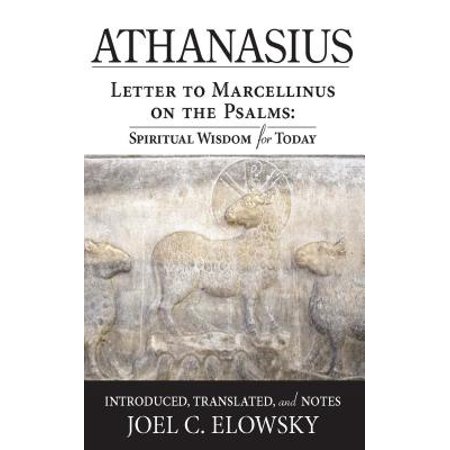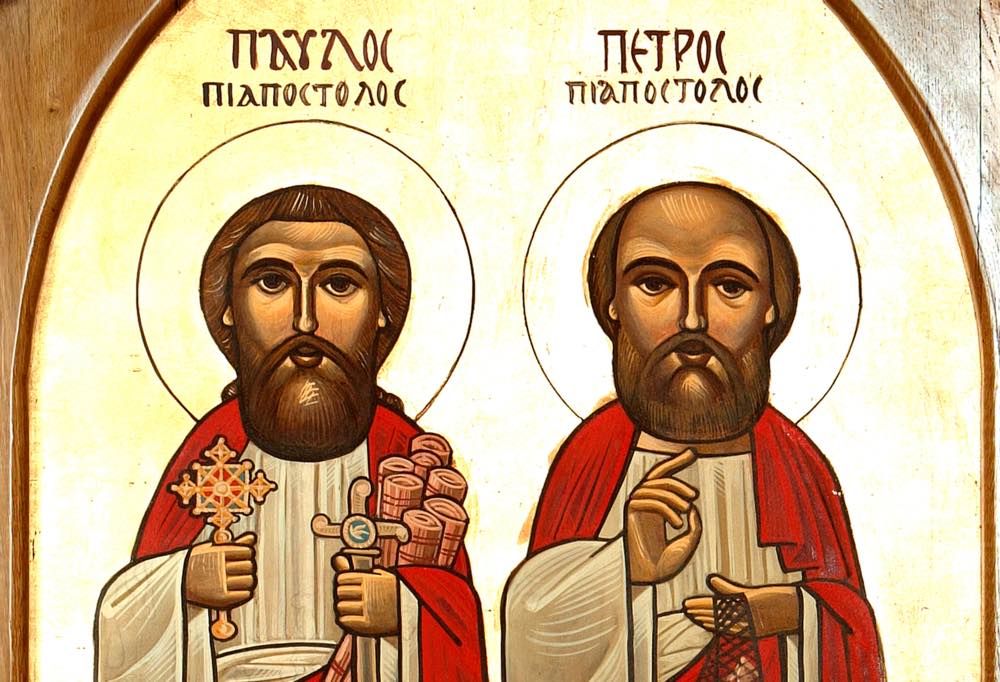– Aurelio Porfiri
We have observed how the life of Jesus and of the first disciples was filled with the singing of the Psalms, and indeed the Psalms formed an important part of their worship to God in the Temple of Jerusalem (destroyed in 70 A.D.) and in the many synagogues that were available to Jewish people.
But also in the following centuries we know that Psalms were always at the center of Christian worship. A book by James McKinnon, Music in Early Christian Literature, gives us an anthology of texts related to music practices in the early Church, and lots of them have to do with Psalms. We think of Clement of Alexandrias’ reference to Psalm 150 in his Paedagogus (“The Spirit, distinguishing the divine liturgy from this sort of revelry, sings: ‘Praise him with the sound of the trumpet,’ and indeed he will raise the dead with the sound of the trumpet. ‘Praise him on the psaltery,’ for the tongue is the psaltery of the Lord.’’).
In the third century’s Didascalia Apostolorum, a church order of service of the same kind of the Didache or the Apostolic Constitutions, we can find this passage: “What is lacking to you in the Law of God that you run after these myths of the gentiles? If it is history that you wish to read, you have Kings; if it is wisdom and poetry, you have the Prophets, in which you will find sagacity beyond that of any wise man or poet, because they are the sounds of the Lord, the only wise. If you yearn for songs, you have the Psalms….” Tertullian (170-225) also make references to the Psalms in some of his writings, also with some possible reference to responsorial recitation: “The more exacting in their prayer are accustomed to add to their prayers and Alleluia and that sort of psalm in which those present respond with the closing verses.” (De Oratione). Talking of a person with the gift of having visions he said: “The material for her visions is supplied as the scriptures are read, psalms are sung, the homily delivered and the prayers are offered” (De Anima).
But one of the most important documents about the Psalms is the fourth century Epistula ad Marcellinum de interpretatione psalmorum (Letter to Marcellinus on the interpretation of Psalms) by Saint Athanasius (296-373). Marcellinus was a friend of Athanasius who, in a difficult period of his life, had found consolation in the Psalms: “My dear Marcellinus, your steadfastness in Christ fills me with admiration. Not only are you bearing your present trial well, with its attendant suffering; you are even living under rule and, so the bearer of your letter tells me, using the leisure necessitated by your recent illness to study the whole body of the Holy Scriptures and especially the Psalms. Of every one of those, he says, you are trying to grasp the inner force and sense. Splendid! I myself am devoted to the Psalms, as indeed to the whole Bible; and I once talked with a certain studious old man, who had bestowed much labour on the Psalter, and discoursed to me about it with great persuasiveness and charm, expressing himself clearly too, and holding a copy of it in his hand the while he spoke. So I am going to write down for you the things he said.”
So Saint Athanasius praised Marcellinus because he tried to find consolation, in a very difficult period of his life, studying and practicing the Psalms. Then Saint Athanasius goes on saying: “Son, all the books of Scripture, both Old Testament and New, are inspired by God and useful for instruction [2 Tim 3:16], as it is written; but to those who really study it, the Psalter yields a special treasure. Each book of the Bible has, of course, its own particular message: the Pentateuch, for example, tells of the beginning of the world, the doings of the patriarchs, the exodus of Israel from Egypt, the giving of the Law, and the ordering of the tabernacle and the priesthood; The Triteuch [Joshua, Judges, and Ruth] describes the division of the inheritance, the acts of the judges, and the ancestry of David; Kings and Chronicles record the doings of the kings, Esdras [Ezra] deliverance from exile, the return of the people, and the building of the temple and the city; the Prophets foretell the coming of the Saviour, put us in mind of the commandments, reproves transgressors, and also has a special word for the Gentiles. Each of these books, you see, is like a garden which grows one special kind of fruit; by contrast, the Psalter is a garden which, besides its special fruit, grows also some of all the rest.” This concept is quite important, because it will be found also in other writers: the Psalter is a sort of summa of everything you need to know about the history of salvation.
In an important passage (at least for our own topic) Saint Athanasius explained why the Psalms should be sung: “Such, then, is the character of the Book of Psalms, and such the uses to which it may be put, some of its number serving for the correction of individual souls, and many of them, as I said just now, foretelling the coming of our Saviour Jesus Christ in human form. But we must not omit to explain the reason why words of this kind should be not merely said, but rendered with melody and song; for there are actually some simple folk among us who, though they believe the words to be inspired, yet think the reason for singing them is just to make them more pleasing to the ear! This is by no means so; Holy Scripture is not designed to tickle the aesthetic palate, and it is rather for the soul’s own profit that the Psalms are sung.”
We find in Athanasius the important theme of the danger of music, the temptation of using music for your own aesthetic pleasure and not to give glory to God. This will be a very important theme in the writings of Church Fathers and we will find it especially in Saint Augustine, that we will consider later.
So what are the reasons why it is important to sing the Psalms? “This is so chiefly for two reasons. In the first place, it is fitting that the sacred writings should praise God in poetry as well as prose, because the freer, less restricted form of verse, in which the Psalms, together with the Canticles and Odes are cast, ensures that by them men should express their love to God with all the strength and power they possess. And, secondly, the reason lies in the unifying effect which chanting the Psalms has upon the singer. For to sing the Psalms demands such concentration of a man’s whole being on them that, in doing it, his usual disharmony of mind and corresponding bodily confusion is resolved, just as the notes of several flutes are brought by harmony to one effect; and he is thus no longer to be found thinking good and doing evil, as Pilate did. Though saying, ‘I find no crime in Him’ [Jn 18:38], he yet allowed the Jews to have their way; nor desiring evil though unable to achieve it, as did the elders in their sin against Susanna – or, for that matter, as does any man who abstains from one sin and yet desires another every bit as bad. And it is in order that the melody may thus express our inner spiritual harmony, just as the words voice our thoughts, that the Lord Himself has ordained that the Psalms be sung and recited to a chant.”
So Saint Athanasius is telling us that chanting the Psalms help us in finding our inner harmony, this chanting brings a unifying element to our body and soul. It is certainly an important concept that will be indeed developed also outside the Christian realm. We may think of the use of Psalms also in a sort of “new age” practices or for relaxation. Of course this kind of practices, from a Christian point of view, must not be encouraged, but we see that also the Church Fathers were thinking that indeed in the chanting of Psalms there is effect on our body and soul, it is a practice that goes beyond being Jews or Christian.
The Letter to Marcellinus is an important document and should be read with care and attention to understand how important was the Psalter for Church Fathers, as we will see in the writings of one of the greatest minds of Christian history, Saint Augustine. He has made a commentary on the Psalms and we will see this in our coming chapter, that will also include a reference that Saint Augustine made to the Psalms singing under Saint Athanasius. A direct witness to uses of our ancient brothers in faith.


 Follow
Follow


